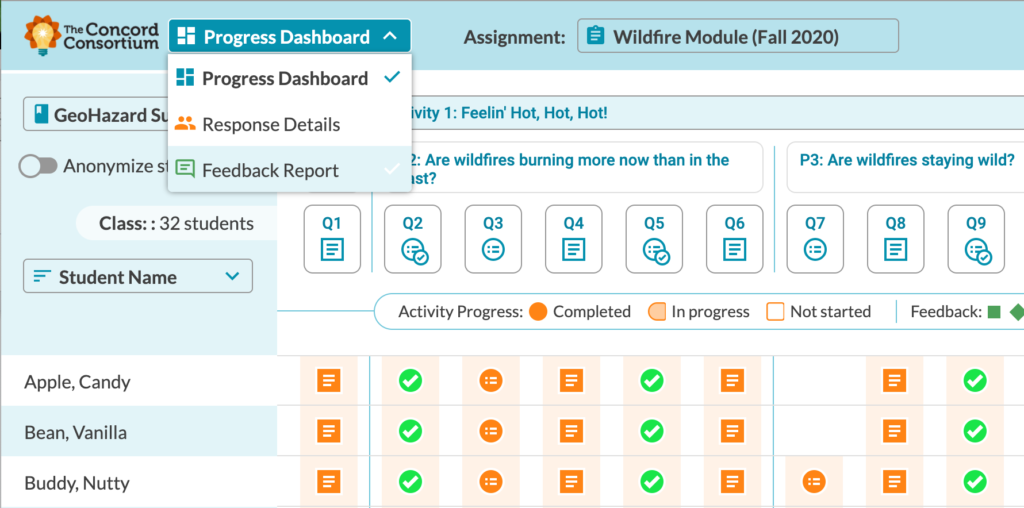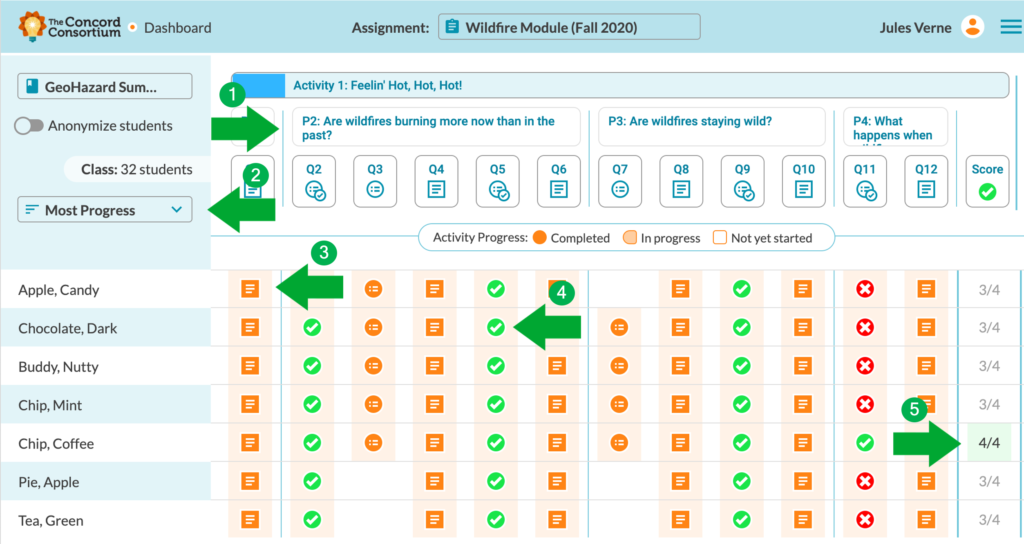Category: Tag: assessment
When we released our new real-time Class Dashboard in the fall, we asked for teacher feedback. Several teachers have reached out and said that this new tool has been a big help as they try to manage classes and track students, both remotely and in person. During a recent classroom observation, we even overheard one […]
Remote and hybrid teaching have made keeping track of student work even more challenging. To address this problem, we redesigned our Class Dashboard and have added it to selected activities and modules in our STEM Resource Finder. Just like past iterations, the newly revised Class Dashboard shows a grid of students’ work that updates in […]
Assessments for several NGSS Performance Expectations in middle school physical and life sciences, featuring videos and simulations, authentic and engaging scenarios, interactive tools for modeling, and scaffolds and supports.
Visual Process Analytics (VPA) is a data mining platform that supports research on student learning through using complex tools to solve complex problems. The complexity of this kind of learning activities of students entails complex process data (e.g….
Two time series and their cross-correlation functionsIn a previous post, I showed you what autocorrelation function (ACF) is and how it can be used to detect temporal patterns in student data. The ACF is the correlation of a signal with itself. We are …
Technology allows us to record almost everything happening in the classroom. The fact that students’ interactions with learning environments can be logged in every detail raises the interesting question about whether or not there is any significant meaning and value in those data and how we can make use of them to help students and […]
Figure 1: Hypothetical student responses to an intervention. In the fourth issue this year, the International Journal of Engineering Education published our 19-page-long paper on the instructional sensitivity of computer-aided design (CAD) logs. This study was based on our Energy3D software, which supports students to learn science and engineering concepts and skills through creating sustainable […]
All educational research and assessment are based on inference from evidence. Evidence is constructed from learner data. The quality of this construction is, therefore, fundamentally important. Many educational measurements have relied on eliciting, analyzing, and interpreting students’ constructed responses to assessment questions. New types of data may engender new opportunities for improving the validity and […]


